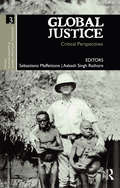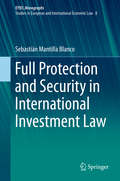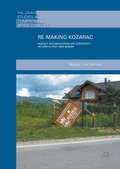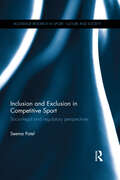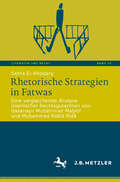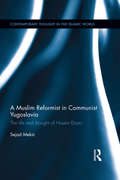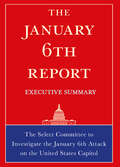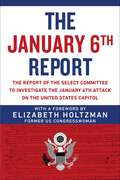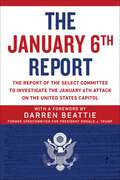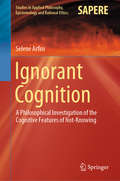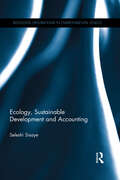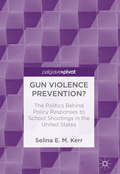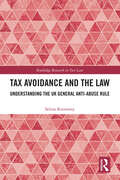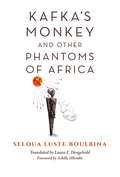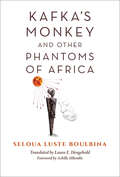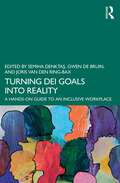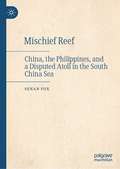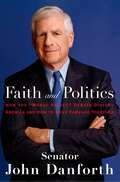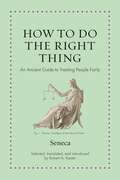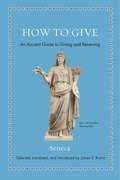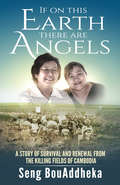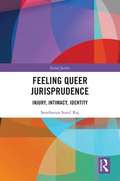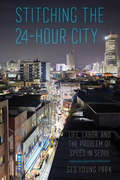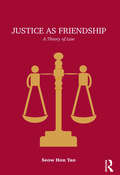- Table View
- List View
Global Justice: Critical Perspectives (Ethics, Human Rights and Global Political Thought)
by Sebastiano Maffettone; Aakash Singh RathoreThe global justice debate has been raging for forty years. Not merely the terms and conditions, but, more deeply, the epistemic, existential and ethical grounds of the international relations of persons, states and institutions are being determined, debated and negotiated. Yet the debate remains essentially a parochial one, confined largely to Western intellectuals and institutional spaces. An Introduction to the field is therefore still urgently required, because it remains necessary to include more ‘global’ voices into this debate of worldwide reach and significance. The book addresses this need in two closely related ways. In Part I, it introduces the main contours of the debate by reproducing three of the most fundamental and influential essays that have been composed on the topic — essays by Peter Singer, Thomas Pogge and Thomas Nagel. In Part II, it makes a decisive critical intervention in the main stream of the debate through exposing the participation deficit afflicting the theorization of global justice. This part begins with a well-known essay by Amartya Sen, who famously referred to the ‘parochialism’ of the global justice debate in making a break with the Rawlsian paradigm that has dominated the field until now. Finally, a series of lively essays newly composed for this volume reflect on the possibilities for deparochializing global justice opened up by Sen’s work in this area. The book will be useful for students of international relations, postcolonial studies, political theory, and social and political philosophy, as well as for those engaged in studies of globalization or global studies.
Full Protection and Security in International Investment Law (European Yearbook of International Economic Law #8)
by Sebastián Mantilla BlancoThis book provides a comprehensive study of the standard of ‘full protection and security’ (FPS) in international investment law. Ever since the Germany-Pakistan BIT of 1959, almost every investment agreement has included an FPS clause. FPS claims refer to the most diverse factual settings, from terrorist attacks to measures concerning concession contracts. Still, the FPS standard has received far less scholarly attention than other obligations under international investment law. Filling that gap, this study examines the evolution of FPS from its medieval roots to the modern age, delimits the scope of FPS in customary international law, and analyzes the relationship between FPS and the concept of due diligence in the law of state responsibility. It additionally explores the interpretation and application of FPS clauses, drawing particular attention to the diverse wording used in investment treaties, the role ascribed to custom, and the interplay between FPS and other treaty-based standards. Besides delivering a detailed analysis of the FPS standard, this book also serves as a guide to the relevant sources, providing an overview of numerous legal instruments, examples of state practice, arbitral decisions, and related academic publications about the standard.
Re-Making Kozarac
by Sebina Sivac-BryantThis book explores agency, reconciliation and minority return within the context of ethnic cleansing in Bosnia. It focuses on a community in North-West Bosnia, which successfully reversed the worst episode of ethnic cleansing prior to Srebrenica by fighting for return, and then establishing one of the only successful examples of contested minority return in the town of Kozarac. The book is a result of a longitudinal, decade-long study of a group of people who discovered a remarkable level of agency and resilience, largely without external support, and despite many of the people and institutions who were responsible for their violent expulsion remaining in place. Re-Making Kozarac considers how a community's traumatic experiences were utilised as a motivational vehicle for return, and contrasts their pragmatic approach to local compromise with the ill-informed and largely unsuccessful international projects that try to cast them as powerless victims. Importantly, the book offers critical reflections on the interventions of the trauma and reconciliation industries, which can be more harmful than is currently realised. It will be of great interest to scholars of criminology, anthropology and international relations.
Inclusion and Exclusion in Competitive Sport: Socio-Legal and Regulatory Perspectives (Routledge Research in Sport, Culture and Society)
by Seema PatelSociety is obsessed with categorising and treating individuals and groups according to their physical and non-physical differences, such as sex, gender, disability and race. This treatment can lead to the inclusion or exclusion of an individual from the tangible and intangible benefits of society. Where this practice becomes discriminatory, legal frameworks can protect human rights and ensure that people are treated with due respect for their similarities and differences. In a sporting context, the inclusion and exclusion of athletes based upon their differences is often a necessary part of the essence of competitive sporting activity, arranged around rules and categories that can have an unequal exclusionary impact on certain classes of individual. Dominant sporting cultures can also have exclusionary effects. This important and innovative book seeks to investigate the socio-legal and regulatory balance between inclusion and exclusion in competitive sport. It critically analyses a range of legal and non-legal cases concerning sport-specific inclusion and exclusion in the areas of sex, gender, disability and race, including those cases involving Oscar Pistorius, Caster Semenya and Luis Suarez, to identify the extent to which the law and sport adopt a justifiable and legitimate inclusive or exclusive approach to participation. The book explores national and international regulatory frameworks, identifying deficiencies and good practice, and concludes with recommendations for regulatory reform. Inclusion and Exclusion in Competitive Sport is important reading for anybody with an interest in the relationship between sport and wider society, sports development, sport management, sports law, or socio-legal studies.
Rhetorische Strategien in Fatwas: Eine vergleichende Analyse islamischer Rechtsgutachten von Ḥasanayn Muḥammad Maḫlūf und Muḥammad Rašīd Riḍā (Literatur und Recht #14)
by Sehra El-KhodaryDieses Buch untersucht, wie islamische Rechtsgelehrte im 20. Jahrhundert in ihren Rechtsgutachten (Fatwas) rhetorisch Autorität generieren und wie sich Traditionalismus und Reformdenken in den Argumentationsmustern, der Intertextualität sowie im Duktus dieser Texte niederschlagen. Damit bietet dieses Buch einen interdisziplinären Zugang zu islamischen Rechtstexten, deren sprachliche Realisierung bisher nur wenig Aufmerksamkeit erhalten hat. Dies, obwohl eine Auseinandersetzung mit der Rhetorik rechtlicher Praxis vertiefte Einblicke in diese sowie in die Konstitutionsbedingungen der Rechtstexte verspricht, ausgehend von dem Grundgedanken der „Recht und Literatur“-Forschung, dass Recht schließlich immer über Sprache kommuniziert wird. Der erste Teil des Buches bietet einen umfassenden Überblick über die Genese des breit gefächerten Genres der Fatwa und des Muftitums bis zur Moderne, wobei Ägypten im Fokus steht. Anschließend werden zwei exemplarisch ausgewählte Fatwas zur Thematik Fotografie/Bildwerke des Reformers Muḥammad Rašīd Riḍā (1865–1935) und des Traditionalisten Ḥasanayn Muḥammad Maḫlūf (1890–1990) im Lichte sowohl gesellschaftlicher Umbrüche des frühen 20. Jahrhunderts als auch des andauernden innerislamischen Diskurses um taqlīd und iǧtihād, ein Diskurs um Geltung, Kompetenz und Autorität, auf mehreren Ebenen detailliert analysiert.
A Muslim Reformist in Communist Yugoslavia: The Life and Thought of Husein Đozo (Contemporary Thought in the Islamic World)
by Sejad MekićA Muslim Reformist in Communist Yugoslavia examines the Islamic modernist thought of Husein Đozo, a prominent Balkan scholar. Born at a time when the external challenges to the Muslim world were many, and its internal problems both complex and overwhelming, Đozo made it his goal to reinterpret the teachings of the Qur’an and hadīth (prophetic tradition) to a generation for whom the truths and realities of Islam had fallen into disuse. As a Muslim scholar who lived and worked in a European, communist, multi-cultural and multi-religious society, Husein Đozo and his work present us with a particularly exciting account through which to examine the innovative interpretations of Islam. <p><P>For example, through a critical analysis of Đozo’s most significant fatwās and other relevant materials, this book examines the extent of the inherent flexibility of the Islamic law and its ability to respond to Muslim interests in different socio-political conditions. Since Đozo’s writings in general and his fatwās in particular have continued to be published in the Balkan lands up to the present, this monograph should help shed some light on certain assumptions underlying modern Islamic thought and consciousness found in the region.
The January 6th Report Executive Summary
by Select Committee on Jan 6thThe fastest way to understand the historic January 6th Report is this definitive edition of the Select Committee's Executive Summary of the Report to Investigate the January 6th Attack on the United States Capitol. The Summary is presented unedited and in its entirety, without the bias of introduction, commentary, or other punditry. <p><p> The result of thousands of interviews, testimony derived from the issuance of over 100 subpoenas, countless hours investigating telephone and internet records as well as analyzing audio, photo, and video evidence, the report uncovers an intricate scheme to overturn the results of the 2020 presidential election. <p><p> The central question of the report, answered in stunning detail here, is: How involved was the president of the United States? <p><p> Months in the making, this stark and gripping text will allow every American to learn for themselves what really happened at the Capitol of the United States on January 6th, 2021. <p><p> The Executive Summary of the January 6th Report is another in Melville House's series of carefully presented "pivotal public documents." (New York Times)
The January 6th Report: The Report of the Select Committee to Investigate the January 6th Attack on the United States Capitol
by Select Committee to Investigate the January 6th Attack on the US CapitolThe most important political investigation since Special Counsel Robert S. Mueller III&’s probe into Russian influence on the 2016 election of Donald J. Trump. The full report by the Select Committee to Investigate the January 6th Attack on the United States Capitol will feature facts, circumstances, and causes related to the assault on the Capitol Complex. Formed on July 1, 2021, the Select Committee has issued over one hundred subpoenas and held over a thousand witness interviews. The report will provide the results of investigations into interference with the peaceful transfer of power; the preparedness and response of the United States Capitol police and other federal, state, and local law enforcement; and the influencing factors that fomented the insurrection and attack on American representative democracy engaged in a constitutional process. The Select Committee investigation and the January 6th report will join the Mueller Report, the 9/11 Commission Report, the Warren Report, the Starr Report, and Watergate as one of the most important in history. The January 6th Report will be required reading for everyone with interest in American politics, for every 2020 voter, and every American. It is available here as an affordable paperback, featuring a foreword by Elizabeth Holtzman, a lawyer and political leader who was a Democratic Congresswoman from New York. Holtzman has a unique perspective on the situation, as she served on the House Judiciary Committee charged with investigating the Watergate scandal and prepared articles of impeachment that precipitated the resignation of President Nixon.
The January 6th Report: The Report of the Select Committee to Investigate the January 6th Attack on the United States Capitol
by Select Committee to Investigate the January 6th Attack on the US CapitolThe most important political investigation since Special Counsel Robert S. Mueller III&’s probe into Russian influence on the 2016 election of Donald J. Trump. The full report by the Select Committee to Investigate the January 6th Attack on the United States Capitol features facts, circumstances, and causes related to the assault on the Capitol Complex. Formed on July 1, 2021, the Select Committee has issued over one hundred subpoenas and held over a thousand witness interviews. The report will provides the results of investigations into interference with the peaceful transfer of power; the preparedness and response of the United States Capitol police and other federal, state, and local law enforcement; and the influencing factors that fomented the insurrection and attack on American representative democracy engaged in a constitutional process. The Select Committee investigation and the January 6th report joins the Mueller Report, the 9/11 Commission Report, the Warren Report, the Starr Report, and Watergate as one of the most important investigations in US history. The January 6th Report will be required reading for everyone with interest in American politics, for every 2020 voter, and every American.
Ignorant Cognition: A Philosophical Investigation of the Cognitive Features of Not-Knowing (Studies in Applied Philosophy, Epistemology and Rational Ethics #46)
by Selene ArfiniThis book offers a comprehensive philosophical investigation of ignorance. Using a set of cognitive tools and models, it discusses features that can describe a state of ignorance if linked to a particular type of cognition affecting the agent’s social behavior, belief system, and inferential capacity. The author defines ignorance as a cognitive condition that can be either passively (and unconsciously) borne by an agent or actively nurtured by him or her, and a condition that entails epistemic limitations (which can be any lack of knowledge, belief, information or data) that affect the agent’s behavior, belief system, and inferential capacity.The author subsequently describes the ephemeral nature of ignorance, its tenacity in the development of human inferential and cognitive performance, and the possibility of sharing ignorance among human agents within the social dimension. By combining previous frameworks such as the naturalization of logic, the eco-cognitive perspective in philosophy and concepts from Peircean epistemology, and adding original ideas derived from the author’s own research and reflections, the book develops a new cognitive framework to help understand the nature of ignorance and its influence on the human condition.
Ecology, Sustainable Development and Accounting (Routledge Explorations in Environmental Studies)
by Seleshi SisayeAccounting literature has viewed sustainability in terms of social, economic and environmental performances. There have been concerns that the relationship between sustainability, accounting and organizational performance cannot be explained unless we can deduce patterns of administrative behaviour that chronicle management practices. Ecology, Sustainable Development and Accounting argues that, despite the broader social and economic development dimensions of sustainability and the limitations of its extension to corporate and organizational behaviour; an ecological framework is capable of providing the overall societal and community chronologies that describe corporate sustainable operations. Drawing examples from international development and federal government organizations, this book documents the link between ecology, corporate sustainable development, and sustainability accounting and reporting. It draws together the literature from several disciplines to elaborate the contribution of the ecological approach to sustainable development in the accounting literature. This book will be of particular interest to students, academics and practitioners in the areas of environmental studies, ecological economics, sustainable development studies, and social and environmental accounting. The sociological and anthropological perspectives make this book the first of its kind to apply the population ecology of sociology to both the sustainability and accounting literature.
Gun Violence Prevention?: The Politics Behind Policy Responses To School Shootings In The United States
by Selina E. M. KerrThis book examines the gun-related policy responses to three school shooting incidents in the United States. Gun violence prevention activists and others involved in policy making were interviewed for the book, and news media articles and policy documents were critically assessed. As a result, interpretations of the Second Amendment are shown to affect the acceptability of certain gun restrictions. News media content and policy documents, coupled with the thoughts of activists, also give an indication of why certain policy measures passed and others failed at the time of each of the case studies. This book should be of interest to social policy, politics, criminology and sociology students and academics, as well as those with a general interest in the topic.
Tax Avoidance and the Law: Understanding the UK General Anti-Abuse Rule (Routledge Research in Tax Law)
by Selina KeesoonyTax Avoidance and the Law is a helpful guide for undergraduate and postgraduate students who want a thorough understanding of this dynamic area of law. The book is written in a way which is easy to follow and conveniently summarises complex case law on tax avoidance. Tax Avoidance and the Law explores the evolution of the UK’s General Anti- Abuse Rule. It provides a useful comparison with other Western jurisdictions’ anti-avoidance legislation, including the United States of America, Australia, New Zealand, South Africa, Canada and the EU. The underlying theme of the book rests on the notion that the taxpayer’s subjective motives, intentions or purposes are irrelevant when assessing tax liability. The book enables students to gain a good grasp of the fundamental issues in tax avoidance in a clear manner.
The Human Rights Challenge to Immunity in International Law
by Selman ÖzdanThis book focuses on the tension between the protection of human rights recognised as jus cogens (peremptory) norms, on the one hand, and the bestowal of immunity on the state and its representatives, on the other, to ascertain how these immunities can be eroded, if not fully abolished, to maintain full protection of jus cogens human rights under international law. The book argues that immunity should not equate to impunity when violations of jus cogens human rights are committed by States, Heads of State, or diplomatic agents. To make the case, the organic structures of the concepts of sovereignty and fundamental human rights are examined. Then, the human rights-based challenge to immunity is presented with respect to State, Head of State and diplomatic immunity, and the transition from a state-centric system to a human-centric system is explored. Jus cogens norms are at the centre of the impunity versus immunity debate.
Kafka's Monkey and Other Phantoms of Africa (World Philosophies)
by Seloua Luste BoulbinaEven though many of France’s former colonies became independent over fifty years ago, the concept of "colony" and who was affected by colonialism remain problematic in French culture today. Seloua Luste Boulbina, an Algerian-French philosopher and political theorist, shows how the colony’s structures persist in the subjectivity, sexuality, and bodily experience of human beings who were once brought together through force. This text, which combines two works by Luste Boulbina, shows how France and its former colonies are haunted by power relations that are supposedly old history, but whose effects on knowledge, imagination, emotional habits, and public controversies have persisted vividly into the present. Luste Boulbina draws on the work of Michel Foucault, Frantz Fanon, and Édouard Glissant to build a challenging, original, and intercultural philosophy that responds to blind spots of inherited political and social culture. Kafka's Monkey and Other Phantoms of Africa offers unique insights into how issues of migration, religious and ethnic identity, and postcolonial history affect contemporary France and beyond.
Kafka's Monkey and Other Phantoms of Africa (World Philosophies)
by Seloua Luste BoulbinaEven though many of France's former colonies became independent over fifty years ago, the concept of "colony" and who was affected by colonialism remain problematic in French culture today. Seloua Luste Boulbina, an Algerian-French philosopher and political theorist, shows how the colony's structures persist in the subjectivity, sexuality, and bodily experience of human beings who were once brought together through force. This text, which combines two works by Luste Boulbina, shows how France and its former colonies are haunted by power relations that are supposedly old history, but whose effects on knowledge, imagination, emotional habits, and public controversies have persisted vividly into the present. Luste Boulbina draws on the work of Michel Foucault, Frantz Fanon, and Édouard Glissant to build a challenging, original, and intercultural philosophy that responds to blind spots of inherited political and social culture. Kafka's Monkey and Other Phantoms of Africa offers unique insights into how issues of migration, religious and ethnic identity, and postcolonial history affect contemporary France and beyond.
Turning DEI Goals into Reality: A Hands-On Guide to an Inclusive Workplace
by Semiha Denktaş, Gwen de Bruin, Joris van den Ring-BaxIn today's dynamic organisational landscape, striving for a diverse workforce does not automatically translate into an inclusive workplace. The book provides practical insights and hands-on tools for how everyone can work towards an organisation that is more inclusive, diverse, equitable, accessible, and ultimately more enjoyable for all.The model presented in the book has already been successfully applied within organisations and can have impact straight away. If you’re in HR, you can read the chapter on inclusive HR, and start changing processes and systems today. If you are in communications, you can read the chapter about inclusive communication and begin immediately. Through providing a holistic, integrated approach for recognising and then transforming – old and ingrained – systems and mechanisms, as well as adapting human behaviour and ways of thinking, this book helps readers to take tangible and impactful steps in creating an inclusive organisation.The book is relevant to anyone looking for a guide to implement DEI practice immediately – in HR, in communications, in consulting, in research, in organisational coaching, and in the boardroom.
Mischief Reef: China, the Philippines, and a Disputed Atoll in the South China Sea
by Senan FoxThis seven-chapter book examines the background to and consequences of the disputed occupation of Mischief Reef in the Spratly Islands group of the South China Sea (SCS) by the People’s Republic of China (PRC), from the mid-1990s to the present day. Although Mischief Reef has received significant media attention and has been discussed in academic journal articles and policy research reports, no books on the topic have appeared since a 30-page publication in 1996. By covering the topic in historical, domestic political, legal, economic, strategic, and geo-political terms, this book not only fills a gap on a particularly important issue with global consequences, but also acts as a follow-on to a previous Palgrave book by this author on another maritime dispute, Socotra Rock. This book will be of interest to journalists, scholars and legal theorists researching the implications of China's rise for maritime disputes in East Asia.
Faith and Politics
by Senator John DanforthSenator John Danforth , an ordained Episcopal priest and former U. S. senator, writes about one of the most conflictridden issues in America: the intersection of government and religion. In Faith and Politics, he takes on many of the polarizing hot-button issues, including stem- cell research, abortion, school prayer, and gay marriage. He expresses dismay at his party for at times straying from traditional Republican principles to pursue an agenda of "wedge" issues. We must, Danforth appeals, move forward together, drawing on our faith to help us live as one nation. Danforth's book is a much-needed clarion call to all Americans.
How to Do the Right Thing: An Ancient Guide to Treating People Fairly (Ancient Wisdom for Modern Readers)
by SenecaHow ancient Stoicism can help teach us to treat others—and ourselves—more fairly and mercifully There are times when we&’ve all felt that we haven&’t been treated as we deserve—that we&’ve been misjudged, shortchanged, or given a raw deal. And, at one time or another, other people have probably felt that we&’ve treated them just as unfairly. How to Do the Right Thing draws on the principles of ancient Stoicism as articulated by the Roman statesman and philosopher Seneca to help readers better navigate one of the most important practical questions of daily life—how to do right by others.Starting from the virtue of magnanimity—the opposite of small-mindedness—How to Do the Right Thing draws together lessons from Seneca&’s writings that stress the importance of calm and clear thinking, of judging oneself fairly before judging others, and of cutting people slack, with a bias toward mercy—all delivered in crisp and lively new translations, and with the original Latin on facing pages.
How to Give: An Ancient Guide to Giving and Receiving (Ancient Wisdom for Modern Readers)
by SenecaTimeless wisdom on generosity and gratitude from the great Stoic philosopher SenecaTo give and receive well may be the most human thing you can do—but it is also the closest you can come to divinity. So argues the great Roman Stoic thinker Seneca (c. 4 BCE–65 CE) in his longest and most searching moral treatise, “On Benefits” (De Beneficiis). James Romm’s splendid new translation of essential selections from this work conveys the heart of Seneca’s argument that generosity and gratitude are among the most important of all virtues.For Seneca, the impulse to give to others lies at the very foundation of society; without it, we are helpless creatures, worse than wild beasts. But generosity did not arise randomly or by chance. Seneca sees it as part of our desire to emulate the gods, whose creation of the earth and heavens stands as the greatest gift of all. Seneca’s soaring prose captures his wonder at that gift, and expresses a profound sense of gratitude that will inspire today’s readers.Complete with an enlightening introduction and the original Latin on facing pages, How to Give is a timeless guide to the profound significance of true generosity.
If on this Earth there are Angels: A story of survival and renewal from the Killing Fields of Cambodia
by Seng BouaddhekaIn April 1975, Addheka was a 14-year-old Cambodian girl who had only just learned to walk after being a polio victim as an infant. She was part of the forced evacuation from Phnom Penh of the entire population of the city and trudged to an unknown future with her large extended family Her beloved father, who produced two other families, altogether looked after 24 children and three wives. The families were soon scattered far and wide and lost touch with each other. The brutal, apocalyptic reality of the Pol Pot regime soon hit home, with devastating consequences for her family. For much of the next four years Addheka was alone, surviving unusual hardship and witnessing the fanatical, irrational, murderous reality of the Khmer Rouge regime. When it all ended, Addheka eventually returned to Phnom Penh to find out which of her family members had survived. She remained in Cambodia and became part of the reconstruction effort, working in a major hospital, then becoming a language teacher and Principal. She underwent a spiritual renewal and today runs the Aid Projects of Mercy for the very poorest children in Cambodia.
Feeling Queer Jurisprudence: Injury, Intimacy, Identity (Social Justice)
by Senthorun Sunil RajThis book draws on the analytic and political dimensions of queer, alongside the analytic and political usefulness of reading emotion, to navigate legal interventions aimed at addressing the rights of LGBT people. Scholars, activists, lawyers, and judges concerned with eliminating violence and discrimination against LGBT people have generated passionate conversations about pursuing law reform to make LGBT injuries, intimacies, and identities visible, while some challenge the ways legal systems marginalise queer minorities. Senthorun Sunil Raj contributes to these ongoing conversations by using emotion as an analytic frame to reflect on the ways case law seeks to "progress" the intimacies and identities of LGBT people from positions of injury. This book catalogues a range of cases from Australia, United States, and United Kingdom to unpack how emotion shapes the decriminalisation of homosexuality, hate crime interventions, anti-discrimination measures, refugee protection, and marriage equality. While emotional enactments in pro-LGBT jurisprudence enable new forms of recognition and visibility, they can also work, paradoxically, to cover over queer intimacies and identities. Raj shows that reading jurisprudence through emotions can make space in law to affirm, rather than disavow, intimacies and identities that queer conventional ideas about "LGBT progress", without having to abandon legal pursuits to better protect LGBT people. This book will be of interest to students and scholars of human rights law, gender and sexuality studies, and socio-legal theory.
Stitching the 24-Hour City: Life, Labor, and the Problem of Speed in Seoul
by Seo Young ParkStitching the 24-Hour City reveals the intense speed of garment production and everyday life in Dongdaemun, a lively market in Seoul, South Korea. Once the site of uprisings against oppressive working conditions in the 1970s and 1980s, Dongdaemun has now become iconic for its creative economy, nightlife, fast-fashion factories, and shopping plazas. Seo Young Park follows the work of people who witnessed and experienced the rapidly changing marketplace from the inside. Through this approach, Park examines the meanings and politics of work in one of the world's most vibrant and dynamic global urban marketplaces.Park brings readers into close contact with the garment designers, workers, and traders who sustain the extraordinary speed of fast-fashion production and circulation, as well as the labor activists who challenge it. Attending to their narratives and practices of work, Park argues that speed, rather than being a singular drive of acceleration, is an entanglement of uneven paces of life, labor, the market, and the city itself. Stitching the 24-Hour City exposes the under-studied experiences with Dongdaemun fast fashion, peeling back layers of temporal politics of labor and urban space to record the human source of the speed that characterizes the never-ending movement of the 24-hour city.
Justice as Friendship: A Theory of Law
by Seow Hon TanThis book explores the question of justification of law. It examines some perennial jurisprudential debates and suggests that law must find its justification in morality. Drawing upon the Aristotelian inspiration that friends have no need for justice - in (ideal) friendship, we behave justly - Seow Hon Tan develops a theory of law based on the universal phenomenon of friendship. Friendships and legal relations attract rights and obligations by virtue of the manner in which parties are situated. Friendship teaches us that how parties are situated gives rise to legitimate expectations; it attests to the intrinsic worth of each person. The methodology for deciphering norms within, and moral lessons from, friendship can be transposed to law, resulting in an inter-subjectively agreeable and rich conception of justice. In determining the content of legal rights and obligations, we can and should draw upon such determination in friendship. Justice as Friendship aims to provide a vision for law’s development and invites the practitioner to advance its central claims in their area of expertise. In dealing with selected legal doctrines, the book draws upon illustrative cases from the United States, the United Kingdom, and the Commonwealth. The book traverses the fields of jurisprudence, philosophy, ethics, political theory, contract law, and tort law.
